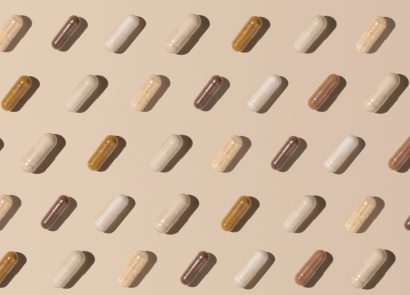Making eco-friendly swaps doesn’t need to be difficult – Kate Arnell tells us why…
1. On a day out
Remember to bring your reusables! I never leave the house without saying “phone, wallet, keys, water bottle!” A little forward planning can go a long way, so if you think you’ll want to grab a coffee while you’re out and about, bring your own reusable cup to take with you. A reusable water bottle is definitely a must! Most cafes and restaurants are happy to refill it for you or look out for refill fountains. I also never leave the house without reusable cloth bags – one large, and several small ones in case I want to grab something unpackaged on the go. Simply ask the server to place your pastry or sandwich straight in, no packaging please!
2. In the garden
If you have a little space, then consider getting a small worm bin to compost food scraps if your local authority can’t collect it. Also, avoid using synthetic chemical pesticides as these can be harmful to wildlife, especially insects such as bees and soil microbes. Growing your own fruits, veggies and herbs is also fun, and means you save on packaging (and money), too!
3. Scrub-a-dub-dub
Shampoo and conditioner can be bought in bars or as refills if you have a refill store close by. If not, try to purchase products sold in glass or metal containers instead of plastic, which is much less likely to be recycled. Replace plastic toothbrushes with bamboo ones, or try a sonic one from georganics.com – the brand encourage customers to send back used heads to be recycled properly as part of its ’zero to landfill’ scheme. Disposable razors can be replaced with a reusable safety razor which lasts a lifetime and the replacement blades cost as little as 10p. Check out acalaonline.com for a great selection of plastic-free and eco-friendly personal-care products. If you want to buy new towels, choose organic cotton – it’s so much better for our skin and the planet compared to conventional cotton – greenfibres.co.uk has a selection that are super-soft!
4. The kitchen clean up
It’s time to quit the paper towel addiction and switch to reusable cloth wipes and, while you’re at it, swap cling film for lidded containers and beeswax wraps. When it comes to cleaning, you only need a few key ingredients rather than an arsenal of toxic products. Simply dilute white vinegar 50/50 with water and spray onto surfaces, then wipe clean. For granite or marble, use a gentle, eco-friendly washing up liquid or diluted vodka instead. Citric acid is great for descaling, while bicarbonate of soda works as a mild abrasive, which is fantastic for cleaning the oven. When the time comes to buy a new appliance, look for ones that are well made and can be repaired – uk.buymeonce.com has curated the best repairable items in the market.
5. Getting dressed
Our clothing can be a huge source of waste and pollution, starting with the production of raw materials, right the way through to how we care and dispose of our clothes. Firstly, buy less. We have, on average, over £200 of unworn clothes sitting in our wardrobes. Next, choose well. Whether you buy new or secondhand, look for quality and natural materials such as organic cotton, linen and wool. Avoid synthetic materials as much as possible, as these are not only polluting to make, but also shed tiny micro-plastics when washed which end up in our oceans and tap water. Finally, make your clothing last by caring and repairing, loved clothes last longer!
6. Don’t shop until you drop
Refuse, reduce, reuse and respond! Refuse plastic bags, because you’ve remembered to bring your reusable one, right? And say, “no thanks” to the receipt. Reduce waste and buy only what you need. Convenient multi-packs often result in unnecessary food and packaging waste. Try bringing reusable containers to the store – simply hand them over the counter to be filled with meat, cheese or deli items and find out if you have a refill store nearby. Use any packaging that frustrates you as a reason to email, tweet or write a letter to the supermarket saying why you love it, but also why you’re frustrated with its packaging – it always helps to mention a competitor who is doing things better.
7. At the office
If you’ve run out of time to prepare your lunch, then keep a cloth bag at work that you can fill with food from your favourite eatery. On a larger scale, see if there are any ways the company could improve. Could the single-use plastic cups by the sink be replaced with reusables? Could you encourage your company to start recycling paper or collecting people’s food waste to be composted? How about organising a discussion with inspiring people to help others be a little more ecofriendly. You could even try setting up an online group for colleagues to swap or donate any unwanted items. Lead by example and, if a colleague shows interest in your reusable coffee cup, then invite them to learn more.
Kate Arnell
Kate Arnell shares her zero-waste lifestyle and love of organic on her YouTube channel (youtube.com/ecoboostblog) and blog eco-boost.co. Her book, Six Weeks to Zero Waste, will be published later this year. Stay up to date on Instagram @Kate_Arnell




















